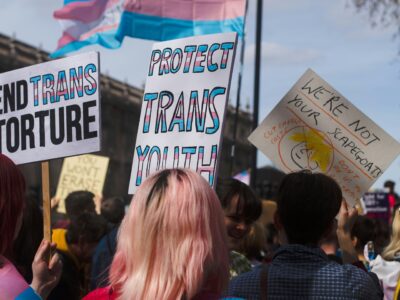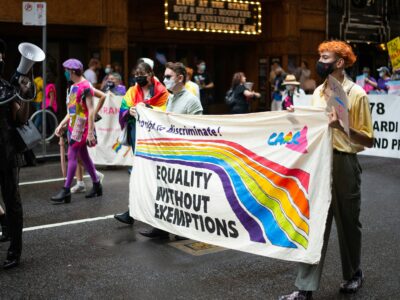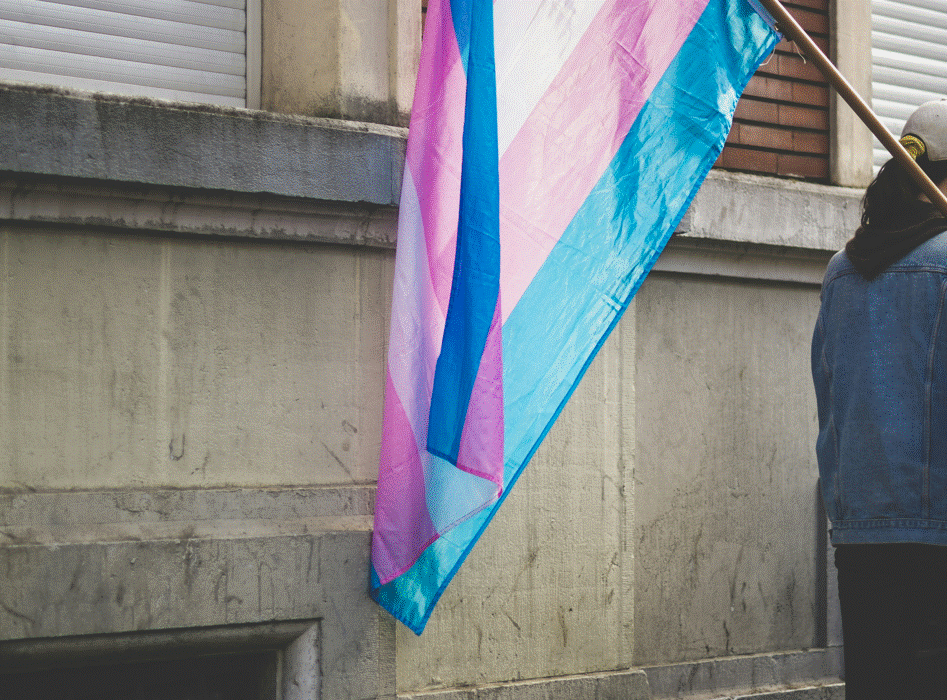Elisabedi Koridze

Karollyne Videira Hubert, April 18, 2022
The UK Supreme Court’s recent ruling on the legal definition of “woman” has sparked outrage, with thousands rallying in London to protest what activists call a direct attack on trans rights.
The UK Supreme Court has ruled that the legal definition of “woman” under equality law can refer exclusively to biological females in specific legal contexts, triggering widespread protests across London. The decision, handed down last week, has been described as one of the most significant rulings on gender rights in recent years, with thousands of trans rights activists gathering outside Parliament in response.
The court’s ruling clarifies that under existing UK equality legislation, the term “woman” can be interpreted as meaning a biological female, particularly in areas such as single-sex hospital wards, prisons, and competitive sports. The judges stated that the decision was based strictly on legal interpretation, not a broader comment on gender identity or trans rights. The Supreme Court found that using a gender recognition certificate to define someone’s sex would clash with the legal definitions of “man” and “woman” under the 2010 Equality Act, which it said refers only to biological sex. The ruling essentially means that trans women who hold gender recognition certificates are not considered women in the eyes of the law. However, critics argue that this opens the door for further legal exclusion of trans women from spaces traditionally protected by equality law.
The response from society has been immediate and intense. Protesters came together for what was called an “emergency demonstration” in Parliament Square. Thousands marched through central London, waving trans flags and chanting in defence of trans rights. Activists say the ruling threatens the legal recognition and protection of trans individuals, especially trans women, who now face the risk of being excluded from essential services and public spaces.
LGBTQIA+ organisations condemned the ruling, calling it a dangerous step backwards. Trans groups are worried that the decision will undermine their rights, even though the court said transgender people remain protected from discrimination. Meanwhile, supporters of the court’s decision argue that it safeguards the rights of biological women, particularly in sensitive or high-risk settings. The Court also noted that the unanimous ruling should not be seen as a victory for one side, but several women’s groups that supported the appeal celebrated outside the court and hailed it as a major win in their effort to protect female-only spaces.
Legal experts warn that the ruling may influence future legislation and court cases in the UK and across Europe. The UK government is now under pressure to clarify its stance, as divisions over gender identity continue to grow. Protests are expected to continue in the coming days, with activists vowing to challenge the ruling both politically and legally.
Sources and Further Readings:
Trans rights supporters rally outside UK parliament after ruling
UK gender ruling sparks London protests
Live: Reaction to UK Supreme Court gender definition ruling
UK Supreme Court rules on definition of ‘woman’ in Scottish case
Thousands of trans rights supporters gather in London following UK ruling over definition of ‘woman’
Trans activists rally in London following UK ruling over definition of ‘woman’
UK’s highest court to rule on definition of ‘woman’ under equality laws
UK Supreme Court ruling on definition of ‘woman’ sparks debate
Critics of trans rights win UK Supreme Court case over definition of woman








Comments